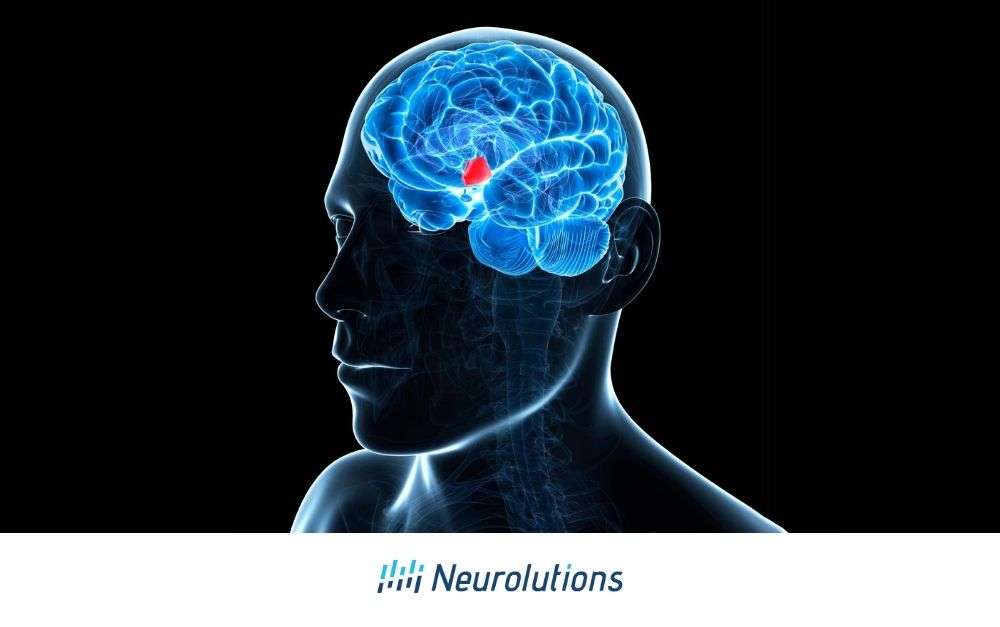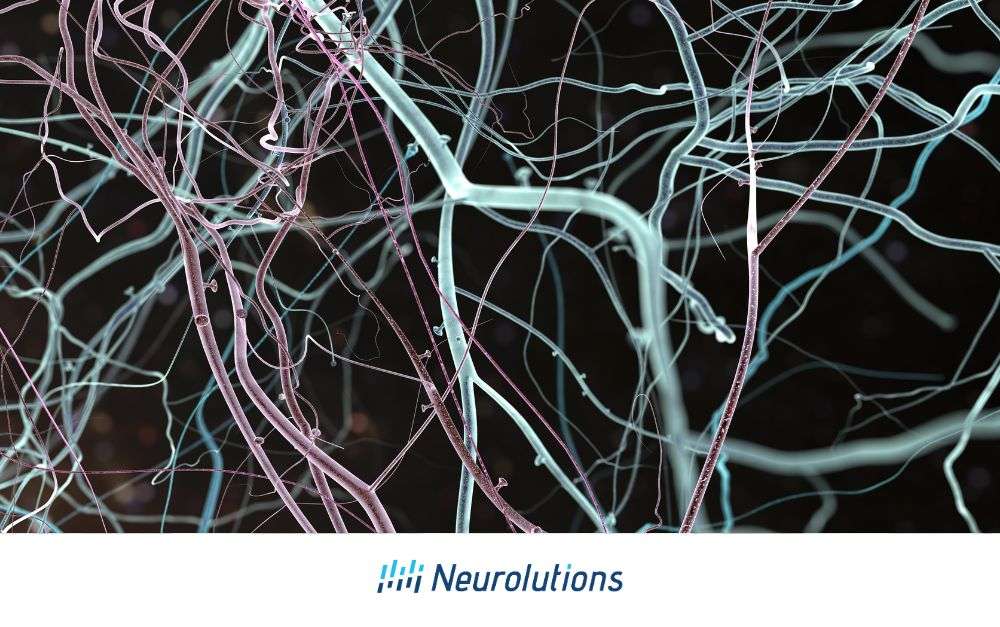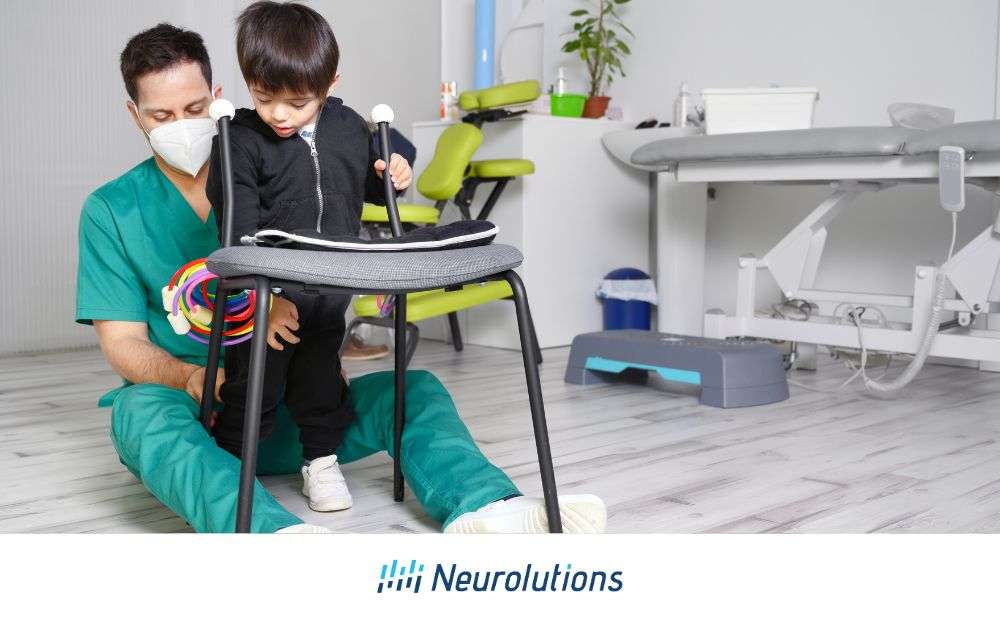The hypothalamus is the part of the brain that controls most of the human body’s involuntary activities. Specifically, it controls the autonomic nervous system inclusive of blood pressure, body temperature, heart rate, and the sleep-wake transition. Additionally, it produces and regulates most hormones, as well as imparts the capacity to experience emotions. A well-functioning hypothalamus is necessary for a reasonable health status in both childhood and adulthood. Strokes and Traumatic Brain Injury (TBI) affecting the hypothalamus are more likely to cause an immediate fatality compared to other locations (1). Those who survive may experience hormone dysfunction resulting in a wide variety of disabling health disorders.
Described below is the role of the hypothalamus in regulating the autonomic nervous system, hormones, and the body’s overall homeostasis, or internal balance. It will also dive into how the dysfunction of the hypothalamus can result in specific disorders, and especially those of the brain and heart.
Understanding the Hypothalamus – Its Roles including Pituitary Gland Control
Located deep in the brain, the hypothalamus is found directly below the thalamus and above the pituitary gland. Besides enabling the body to maintain a homeostatic state (including the fluid balance in the blood), it directs the autonomic nervous system that is the controller of normal body temperature and other functions essential for survival. It also controls the pituitary gland, which in turn controls the body’s endocrine system.
The pituitary gland is considered the “master gland” in the body, controlling the hormone secretion of most other glands as well as itself (2). Thus, the pituitary gland is actually considered a pituitary “system” due to its tremendous impacts on our physiological functions.
What is the Pituitary System?
Growth hormones are controlled and released by the pituitary gland, thus growth of the body is controlled by the pituitary system. Given the impact of the pituitary system, genetic pituitary disorders have profound effects on fetal growth and normal childhood development.
The pituitary system controls all of the other glands of our endocrine system, including the following:
- Adrenal glands (two triangular glands that exist on top of each kidney): The adrenal glands produce hormones that assist in regulating metabolism, the immune system, blood pressure, the autonomic response to stress, and other functions. The two main hormones secreted by the adrenal glands are aldosterone and cortisol.
- Thyroid (located in the front part of the lower neck): The thyroid gland secretes hormones that regulate metabolism and related processes, as well as the rate of growth and development. The two primary hormones produced by the thyroid are thyroxine (T4) and triiodothyronine (T3).
- Pancreas (located in the upper abdomen just behind the stomach and in front of the spine): Among its endocrine roles, the pancreas controls the production and release of insulin, the hormone that controls the level of glucose in the blood. Insulin is necessary for regulating blood glucose or “blood sugar”.
- Parathyroid (four glands around the thyroid gland): The parathyroid gland produces parathyroid hormone. This hormone regulates the levels of calcium and phosphorus in the blood. Therefore, it also has a major effect on proper kidney functioning to eliminate waste in the form of urine.
- Gonads (ovaries in females; testes in males): These are important components of the human reproductive system. The pituitary gland secretes FSH and LH hormones which stimulate the growth of follicles of the ovaries. In males, FSH receptors are located in the testes. In both females and males, FSH impacts sexual development and reproductive system functioning. There is a hypothalamus-pituitary-gonad feedback loop that regulates the release of various hormones such as estrogen and testosterone.
The hypothalamus also secretes hormones directly, and these hormones stimulate the pituitary system, “instructing” the body’s glands to secrete specific hormones plus regulate the amount of each hormone’s secretion.
The Hypothalamus and Heart Health
Hypertension (high blood pressure) can result from a dysfunction in the hypothalamus. 47% of diagnosed heart disease cases and 54% of all strokes are linked to hypertension (3). Therefore, a person who has experienced a stroke or Traumatic Brain Injury (TBI) needs to be monitored for chronic hypertension.
Located at the base of the hypothalamus, the arcuate nucleus plays a major role in cardiovascular regulation, such as blood pressure regulation, as well as the functioning of the anterior part of the pituitary gland (4). However, it is disruption of the hypothalamus-pituitary-hormone feedback loop that is the chief way that sudden heart failure can occur as a consequence of injury in the hypothalamus (5). For example, an elevated cortisol hormone level is strongly linked to hypertension. While elevated cortisol is also linked to chronic stress or an adrenal gland problem, a dysfunction of either the hypothalamus or pituitary gland can also cause an overly-high blood cortisol level, resulting in heart disease and/or heart failure.
Heart attack and stroke survivors are more likely to be anxious after surviving this type of life-threatening event and therefore experience elevated cortisol levels. In order to prevent the emergence of additional disorders, medical providers should examine survivors suddenly afflicted with chronic hypertension after their brain injury. These providers will look for damage to the hypothalamus or pituitary gland due to stroke, Traumatic Brain Injury (TBI), infection, or tumor.
Impact of Hypothalamus Damage to the Heart
The following are the eight main causes of hypothalamus damage that can lead to a heart disorder (6):
- Stroke or Traumatic Brain Injury (TBI)
- Brain Tumor (Benign or Malignant)
- Infection in the brain (such as meningitis)
- Prolonged starvation or Anorexia Nervosa
- Genetic disorders such as Prader-Willi Syndrome
- Nerve cell-destroying autoimmune disorders such as Multiple Sclerosis (MS)
- Radiation performed on the brain
- Complication of brain surgery
Additionally, genetic disorders affecting hormone release, such as Addison’s Disease, can lead to heart disorders. Addison’s Disease is a genetic adrenal gland disorder that causes insufficient release of cortisol or aldosterone. Between 15-20% of all cases of hypothyroidism are genetic, and this can lead to heart damage (7).
Diabetes Insipidus – Link to Hypothalamus Damage
Diabetes Insipidus is a disorder that can result from a stroke or Traumatic Brain Injury (TBI) and affects the hypothalamus. The hypothalamus produces and releases the chemical anti-diuretic hormone (ADH), also known as vasopressin, that decreases water excretion by the kidneys. Hypothalamus dysfunction can interfere with production of ADH. Without ADH released, the kidneys will make too much urine and, as a result, the afflicted person often feels persistent thirst (8).
It is important to understand that Diabetes Insipidus is an entirely different disorder from Diabetes (Types 1 and 2). While Diabetes (Types 1 and 2) are featured by an abnormally high blood glucose level due to low (or no) insulin hormone release, people living with Diabetes Insipidus usually have a normal blood glucose level.
Diagnosing Hypothalamus-Related Heart Issues
Understanding the Hormones Produced by the Hypothalamus
The hypothalamus produces and releases several hormones necessary for proper pituitary and other gland functioning. These include (9):
- Thyrotropin-releasing hormone (TRH)
- Gonadotropin-releasing hormone (GnRH)
- Growth hormone-releasing hormone (GHRH)
- Corticotropin-releasing hormone (CRH)
Blood Tests as a Diagnostic Tool
When a disorder of the hypothalamus or pituitary gland is suspected, blood tests are typically ordered by the patient’s medical provider. Blood tests for the above-described hypothalamus hormones can involve injecting specific hormones or other substances into a person’s bloodstream. Then, multiple blood samples are drawn and tested over a period of days or weeks to determine if an abnormality in the release of hypothalamus-produced hormones exists.
More commonly, one vial of blood is obtained from a person’s arm and provided to a clinical lab for testing. This testing is performed to identify the levels of various hormones produced by the body’s glands, such as (10):
- Cortisol
- Growth Hormone (GH)
- Sodium
- Estrogen
- Prolactin
- Thyroid hormones
Urine Tests and Brain Scans as Diagnostic Tools
Urine tests are also frequently performed to determine if abnormal levels of urine components exist, such as an abnormally high sodium or phosphate level. Especially following a stroke or TBI suggesting hypothalamus involvement, MRI and/or CT scans of the brain are often performed.
The Necessity of Periodic Re-Testing
In order to diagnose hypothalamic or pituitary disorders correctly, numerous visits with a medical provider for repeat testing may be necessary. This re-testing is performed in order to rule out other causes for any abnormal test results or even confirm findings through repeat MRI or CT scans.
Treatment and Management
The treatment for hypothalamus dysfunction is dependent upon the cause of that dysfunction. If hypothalamus or pituitary hormone deficiencies are due to a stroke or TBI, treatment can involve hormone replacement therapy via injection or an oral pharmaceutical agent. Among moderate-to-severe TBI survivors, hypopituitarism (reduced pituitary gland functioning) is common and may require the replacement of pituitary hormones (11).
When the hypothalamus dysfunction affects the pituitary gland’s “instructions” to one or more of the other glands in the body, targeted hormone replacement therapy may be needed. For example, if the secretion of thyroid hormones by the thyroid gland has been affected, taking thyroid hormones for life may be necessary. As follow-up whenever hormones are prescribed, close monitoring is typically performed to adjust hormone levels if needed. Both weight gain and weight loss can impact the level of replacement hormone needed, as well as the level of daily physical exercise.
Cognitive fatigue, sleep disturbances, and depression are common in stroke and TBI survivors with resultant hypothalamus damage, thus treatment and management often involves social workers and mental health clinicians.
Living with Hypothalamus-Related Heart Conditions
The goal of healthcare for people living with hypothalamus-related heart conditions is to maintain the overall health of the afflicted person and prevent worsened health. Therefore, many of the strategies to maintain and boost “heart health” in people without a hypothalamus-related heart condition may be beneficial for a stroke or TBI survivor. This includes a healthy daily diet, getting enough sleep, and engaging in regular exercise. A comprehensive rehab program that is tailored to the needs of the stroke or TBI survivor generally encompasses these health-boosting strategies.
For stroke or TBI survivors with hypothalamus-related heart conditions, the following are recommended:
- Engage in a stroke or TBI-focused rehab program, inclusive of physical and/or occupational therapy
- Keep your medical appointments for regularly-scheduled check-ups, and do not skip doses of your prescribed hormones and/or medications without talking to your doctor first
- Eat a healthy daily diet that is low in saturated fats, so that chronically-high cholesterol can be prevented due to its role in worsening heart disease
- Participate in a cognitive rehab program and/or play cognition-boosting “games” such as online Scrabble
- Engage in social interactions with at least one other person each day
- Go to bed at the same hour each night, and get out of bed at the same hour each morning
Conclusion
Damage to the hypothalamus of the brain can result in both dysfunction of the autonomic nervous system and poor pituitary gland functioning. Therefore, hypothalamus damage is more likely to result in permanent and severe health disorders than brain damage that does not include the hypothalamus. Since the autonomic nervous system includes essential bodily mechanisms such as heart rate and body temperature, a disturbance can profoundly affect overall health.
Due to the role of the hypothalamus in controlling the pituitary gland, which controls all of the other hormone-releasing glands in the body, various hormones released into the blood can have abnormally low or high levels. In turn, this can cause numerous other chronic health disorders, including poor immune system functioning and heart disease.
In particular, the hypothalamus enables experiencing pleasurable emotions. Therefore, stroke and TBI survivors with hypothalamus damage are more likely to experience persistent depression and hopelessness. Chronic fatigue and sleep disturbances are also common in people with damage to the hypothalamus.
Following a stroke or Traumatic Brain Injury (TBI) that impacts the hypothalamus, an accurate diagnosis needs to be obtained along with a thorough analysis of hormone levels. Treatment and management can include hormone replacement therapy, as well as management of the circulatory system and heart to avoid heart damage or sudden heart failure.
It is recommended that stroke and TBI survivors with hypothalamus damage participate in a rehabilitation program that includes cognitive rehab. Additionally recommended is embracing a “heart healthy” lifestyle to both decrease the likelihood of developing heart disease and increase the possibility of performing previously-enjoyed activities.
References:
- Camargo ECS, and Samuels MA. (2012). Cardiac and autonomic manifestations of stroke. In: Caplan LR, van Gijn J (Editors). Stroke Syndromes, 3rd Edition. Cambridge University Press: Cambridge, England, UK; pp. 294-305. Webpage: https://www.cambridge.org/core/books/abs/stroke-syndromes-3ed/cardiac-and-autonomic-manifestations-of-stroke/071E71668E9598ECB56DB241866506FF
- You and Your Hormones [Society for Endocrinology]. Pituitary Gland. Webpage: https://www.yourhormones.info/glands/pituitary-gland/
- Wu CY, Hu HY, Chou YJ, et al. (2015). High Blood Pressure and All-Cause and Cardiovascular Disease Mortalities in Community-Dwelling Older Adults. Medicine (Baltimore) 94(47): e2160. Webpage: https://www.ncbi.nlm.nih.gov/pmc/articles/PMC5059018/#:~:text=Approximately%2054%25%20of%20strokes%20and,are%20attributable%20to%20high%20BP.
- Rahmouni K. (2016). Cardiovascular Regulation by the Arcuate Nucleus of the Hypothalamus: Neurocircuitry and Signaling Systems. Hypertension 67(6): 1064-1071. Webpage: https://www.ncbi.nlm.nih.gov/pmc/articles/PMC4865428/
- Gold SM, Dziobek I, Rogers K, et al. (2005). Hypertension and Hypothalamo-Pituitary-Adrenal Axis Hyperactivity Affect Frontal Lobe Integrity. The Journal of Clinical Endocrinology & Metabolism 90(6): 3262–3267. Webpage: https://academic.oup.com/jcem/article/90/6/3262/2870554
- Sanchez Jimenez JG, and De Jesus O. (Updated 2023). Hypothalamic Dysfunction. In: StatPearls [Internet]. StatPearls Publishing: Treasure Island, FL. Webpage: https://www.ncbi.nlm.nih.gov/books/NBK560743/
- National Library of Medicine, MedlinePlus. Congenital hypothyroidism. Webpage: https://medlineplus.gov/genetics/condition/congenital-hypothyroidism/#:~:text=Genetic%20causes%20account%20for%20about,percent%20of%20cases%20are%20inherited.
- National Institute of Diabetes and Digestive and Kidney Diseases. Diabetes Insipidus. Webpage: https://www.niddk.nih.gov/health-information/kidney-disease/diabetes-insipidus#:~:text=Diabetes%20insipidus%20is%20a%20rare,to%20urinate%20frequently%2C%20called%20polyuria.
- Shahid Z, Asuka E, and Singh G. (Updated 2023). Physiology, Hypothalamus. In: StatPearls [Internet]. StatPearls Publishing: Treasure Island, FL. Webpage: https://www.ncbi.nlm.nih.gov/books/NBK535380/#:~:text=The%20thyrotropin%2Dreleasing%20hormone%20(TRH,travel%20to%20the%20anterior%20pituitary.
- Mount Sinai [Icahn School of Medicine at Mount Sinai, New York, NY]. Hypothalamic dysfunction. Webpage: https://www.mountsinai.org/health-library/diseases-conditions/hypothalamic-dysfunction
- Javed Z, Qamar U, and Sathyapalan T. (2015). Pituitary and/or hypothalamic dysfunction following moderate to severe traumatic brain injury: Current perspectives. Indian Journal of Endocrinology and Metabolism 19(6): 753-63. Webpage: https://www.ncbi.nlm.nih.gov/pmc/articles/PMC4673802/




